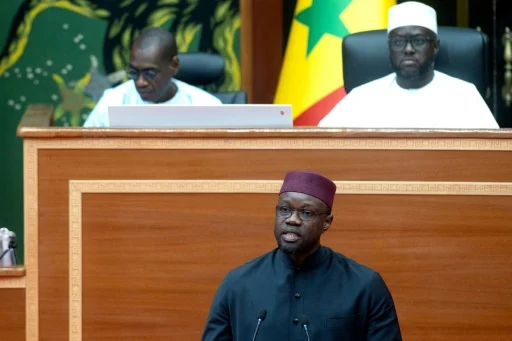Senegal’s parliament has approved a revision of the controversial amnesty law introduced by former President Macky Sall, a measure that has ignited fierce public debate.
The original law, passed just before the March 2024 elections, was intended to calm tensions following Sall’s sudden postponement of the vote. Critics argued that it served to protect those responsible for serious crimes committed during three years of political unrest between February 2021 and February 2024.
The amnesty also paved the way for opposition leader Ousmane Sonko, now Senegal’s prime minister, to participate in the election despite previous convictions that had barred him from running. It also cleared the path for Bassirou Diomaye Faye, who ultimately won the presidency.
According to an independent group of journalists, cartographers, and scientists, at least 65 people were killed during the protests over the three years, with 51 of them shot. Most of the victims were young.

In December, Sonko had promised to repeal the law entirely, declaring that “justice, the foundation without which social peace cannot be built,” must be served. However, the new revision stops short of a full repeal. Instead, it removes amnesty protections for crimes such as murder, torture, and forced disappearances.
The measure was passed with 126 votes in favour and 20 against in the 165-member National Assembly. Amadou Ba, the bill’s architect, said it was aimed at fighting impunity for serious human rights abuses.
However, opposition figures and civil society activists have criticised the ruling Pastef party, accusing it of protecting its supporters while presenting the reform as a step toward justice.
Abdou Khafor Kandji from the activist group “Y’en a Marre” (“I’m Fed Up”) expressed frustration over what he called a political manoeuvre, saying the government had shifted from a full repeal to merely modifying the law.
Meanwhile, Amnesty International’s Senegal director, Seydi Gassama, acknowledged that while the revision does not go as far as some hoped, it could still help victims seek justice.


